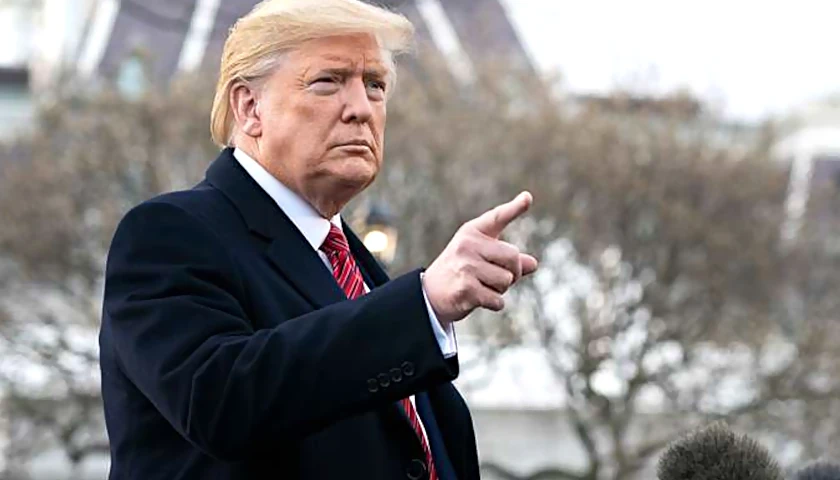by McKenna Dallmeyer
MBA programs at universities across the country have added diversity, inclusion, and equity (DEI) initiatives into their program curriculum, orientations, leadership, events, and student groups.
Below is a list of how some universities across this country are training the future woke leaders of American businesses.
The list includes Michigan State University, where Disney CEO Bob Chapek received his MBA degree.
Chapek and Disney have been in the news lately surrounding the former’s criticism of Florida Governor Ron DeSantis’ “Parental Rights in Education” bill.
Michigan State University
Michigan State University’s (MSU) Broad College of Business boasts that its environment and curriculum will “challenge” students “to solve future business problems with a different angle and an emphasis on equity.”
A stated goal of the Broad MBA DEI Committee is to “[promote] critical thinking skills on implicit, cognitive, and systematic bias.”
“DEI-focused events” such as DEI Week, “Movie and podcast discussions led by the Black MBA Association,” and a Diwali celebration are all sponsored by the business school.
Additionally, the school’s podcast, Spartan Stories: The Broad MBA, “often focuses” on DEI initiatives within the program as well as alumni’s DEI contributions to the business world.
MSU Deputy Spokesperson Dan Olsen told Campus Reform that “representation of diverse students within the program has continued to increase and we are set to continue that trend into 2024.”
“Currently, 33% of students in the program identify as members of a minority community, 28% of students in the program identify as being international, and 33% of students identify as female,” Olsen said.
University of Rochester
The Simon Business School founded the Diversity and Inclusion Center of Excellence, which “exists to foster a community atmosphere of mutual respect by promoting cultural awareness, leading responsible dialogue, and inspiring social change.”
Additionally, the school partners with diversity-focused nonprofit organizations such as Forte and Reaching Out to accomplish its “ongoing priority” of “advancing high-potential minority, military, LGBT, and female students.”
Carnegie Mellon University
The Tepper School of Business is seeking to create tomorrow’s “value creators and pioneers of change for business and society” through its Diversity, Equity, Inclusion, and Belonging (DEI&B) initiatives.
A “Diversity Weekend” admissions event invites all “underrepresented minorities, women, LGBTQ, and military veterans” to learn more about the “Tepper Experience.”
According to the website, as part of the DEI&B Strategic Plan, master’s and Ph. D. students are required to undergo “Admissions Reviewer Bias Mitigation Training.” Additionally, the latter will be required to take “additional DEI&B-focused training students.”
Yale University
Yale School of Management’s Office of Inclusion & Diversity established a faculty working group that is reviewing the 2021-2022 MBA curriculum in order to “[explore] ways to integrate and teach DEI topics as part of the academic experience.” Currently, 24 sessions of DEI programming are offered at orientation all the way through the fall semester.
The office also mandates students, staff, and faculty to complete an online course that “covers topics such as identities and perspectives, unconscious bias, microaggressions and forms of exclusion.”
Additionally, an advisory board called the “Council on Anti-Racism and Equity” was formed. Other initiatives include “DEI Labs,” “Curriculum Specific DEI Workshops” and “Coffee with Intention.”
The University of Texas at Austin
The McCombs School of Business at the University of Texas at Austin offers a course called “Bias and Stereotyping in Marketing,” which was created and offered to master’s students during the spring 2021 semester in response to the death of George Floyd, according to McCombs magazine.
“Knowing how marketing influences societal attitudes and behaviors on diversity and inclusion, they sought input from their colleagues and drafted a list of marketing decisions that have perpetuated stereotypes, normalized biases, and led to inequitable access to goods and services,” the article states.
“Examples abound in famous brands and mascots (Aunt Jemima, Land O‘Lakes, Washington Redskins), gender-based pricing (‘pink tax’), tolerance of hate symbols (Confederate flags at NASCAR), and the role of redlining in location decisions,” it continues.
McCombs also held an April conference called “Elevate” which discussed how to “promote sustainable outcomes for DE&I in the business world.”
University of Michigan
The Michigan Ross School of Business recently added DEI-focused sessions to its weeklong orientation for MBA students. Sessions centered around identity, intersectionality, the “role of and case for DEI in organizations,” allyship, and anti-racism.
University of North Carolina
UNC Kenan-Flagler Business School implements diversity initiatives prior to the MBA program start, during the program and then outside the program.
Events held for prospective MBA students include “Diversity Week” and “Inclusive Blue Leadership Week” which discuss inclusion and the “future of DEI in business.”
During MBA students’ first year, they are required to take “Inclusive Leadership” which teaches students how to harness diversity “effectively.” The college also offers DEI electives such as “Corporate Communication: Social Advocacy.”
Beyond the classroom, the college annually hosts the “Inclusion in Business Panel” and “Celebrating Black Business” events.
Stanford University
Stanford Graduate School of Business’s Action Plan for Racial Equity focuses on the recruitment of minorities, the creation of an inclusive environment, and the enactment of “change.”
A new position coined the Director of Student Engagement and Inclusion was created that will facilitate DEI initiatives within the MBA program. Additionally, a Racial Equity Alumni Task Force was established which focuses on how to solve “systemic issues” minorities may face.
University of Virginia
The Darden School of Business offers elected leadership positions including diversity representatives and gender equity representatives. The director of women’s recruiting explained that the latter is “designed to keep gender issues at the forefront of discussion in the classroom and beyond.”
Campus Reform reached out to the mentioned universities but did not receive responses in time for publication.
– – –
McKenna Dallmeyer is a Virginia Senior Campus Correspondent, reporting on liberal bias and abuse for Campus Reform. She is a Senior studying cybersecurity at Liberty University.
Photo “University of Stanford Campus” by University of Stanford.




